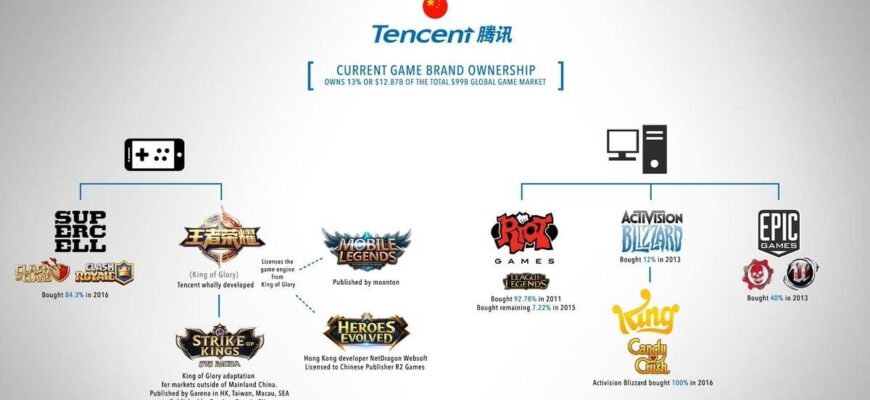The gaming world is no stranger to fierce competition, but a recent legal skirmish between two of its most colossal players, Tencent and Sony, elevates the discussion from market share to the very definition of creative ownership. At the heart of this dispute lies Sony`s accusation that Tencent`s upcoming title, “Light of Motiram,” is an illicit clone of its critically acclaimed “Horizon Zero Dawn.” Tencent, however, has not only vehemently denied these claims but has pivoted the narrative, alleging that Sony`s true intent is not intellectual property protection but a more ambitious, and perhaps alarming, bid to monopolize elements of pop culture.
The Genesis of the `Clone` Allegation
Sony`s initial offensive saw them targeting various Tencent entities, alongside several unnamed co-defendants, asserting that “Light of Motiram” — a game not slated for release until 2027 — brazenly copies foundational elements of the “Horizon” series. The PlayStation giant contended that these similarities were not merely coincidental but deliberate, designed to mislead consumers and capitalize unfairly on an established franchise. This pre-emptive strike against a title still years from public consumption certainly raised eyebrows, setting the stage for a dramatic counter-response.
Tencent`s Counter-Offensive: A Monopoly of Ideas?
Tencent`s rebuttal was as robust as it was strategic. Far from simply defending their game, the Chinese tech titan framed Sony`s lawsuit as an attempt to erect “artificial barriers around ideas that have long existed in the industry.” This assertion shifts the focus from a specific game`s design to the broader concept of intellectual monopolization, hinting at a desire by Sony to “fence off” genre conventions rather than truly unique innovations.
In a move that could be perceived as a tactical parry, Tencent also challenged the very originality of “Horizon Zero Dawn” itself. They cited “Enslaved: Odyssey to the West,” a 2013 title, as an example of a game that already explored concepts of a post-apocalyptic world populated by mechanical creatures. The implication is clear: if “Horizon” draws from existing wellsprings of creativity, can its elements truly be considered so exclusive as to warrant a “monopoly” claim? It`s a rather pointed observation in a genre space that often thrives on evolution rather than pure invention.
Furthermore, Tencent underscored the premature nature of Sony`s legal action. With “Light of Motiram” not expected until 2027, any judgment on its final form and alleged infringement is, by their account, speculative at best. It`s akin to accusing a chef of culinary theft based solely on their grocery list. Adding another layer of complexity, Tencent revealed that they had even approached Sony in 2024, prior to the announcement of “Light of Motiram,” with an offer for a joint development of a new “Horizon” installment. This revelation paints a picture of a relationship that, at one point, seemed poised for collaboration rather than conflict.
Beyond the Horizon: The Broader Implications for Gaming IP
This legal duel extends far beyond the confines of “Light of Motiram” and “Horizon Zero Dawn.” It forces the industry to confront fundamental questions about originality, inspiration, and the ownership of creative concepts in a mature and interconnected global market. When does inspiration become infringement? At what point do genre staples morph into proprietary elements?
For smaller developers, such a precedent could be chilling. If foundational narrative structures or common gameplay mechanics can be claimed exclusively by industry giants, the creative sandbox might shrink considerably. The gaming landscape, a tapestry woven from shared myths and evolving mechanics, often sees developers building upon, refining, and reinterpreting existing ideas. Is every game featuring a desolate world and robotic adversaries now treading on a major studio`s exclusive intellectual turf? One might wonder if the next game with a sprawling open world or a crafting system will face similar scrutiny.
This dispute, therefore, isn`t just about two corporate behemoths squaring off; it`s a litmus test for the future of innovation and competition within the entertainment sector. It`s a reminder that in the high-stakes world of interactive entertainment, intellectual property isn`t merely about code and assets, but about the very ideas that drive our collective imagination – ideas that, ironically, often thrive when shared and reinterpreted, not when jealously guarded.
Conclusion: A Precedent in the Making?
As the legal proceedings unfold, the gaming community will be watching closely. The outcome of this clash between Tencent and Sony could set a significant precedent, reshaping how intellectual property is defined, defended, and innovated upon for years to come. Whether Sony succeeds in securing its “horizon” or Tencent successfully pushes back against what it perceives as an attempt to monopolize the very air of pop culture remains to be seen. What is clear, however, is that the lines between inspiration and infringement are becoming increasingly blurred, and the battle over where those lines are drawn is far from over.









